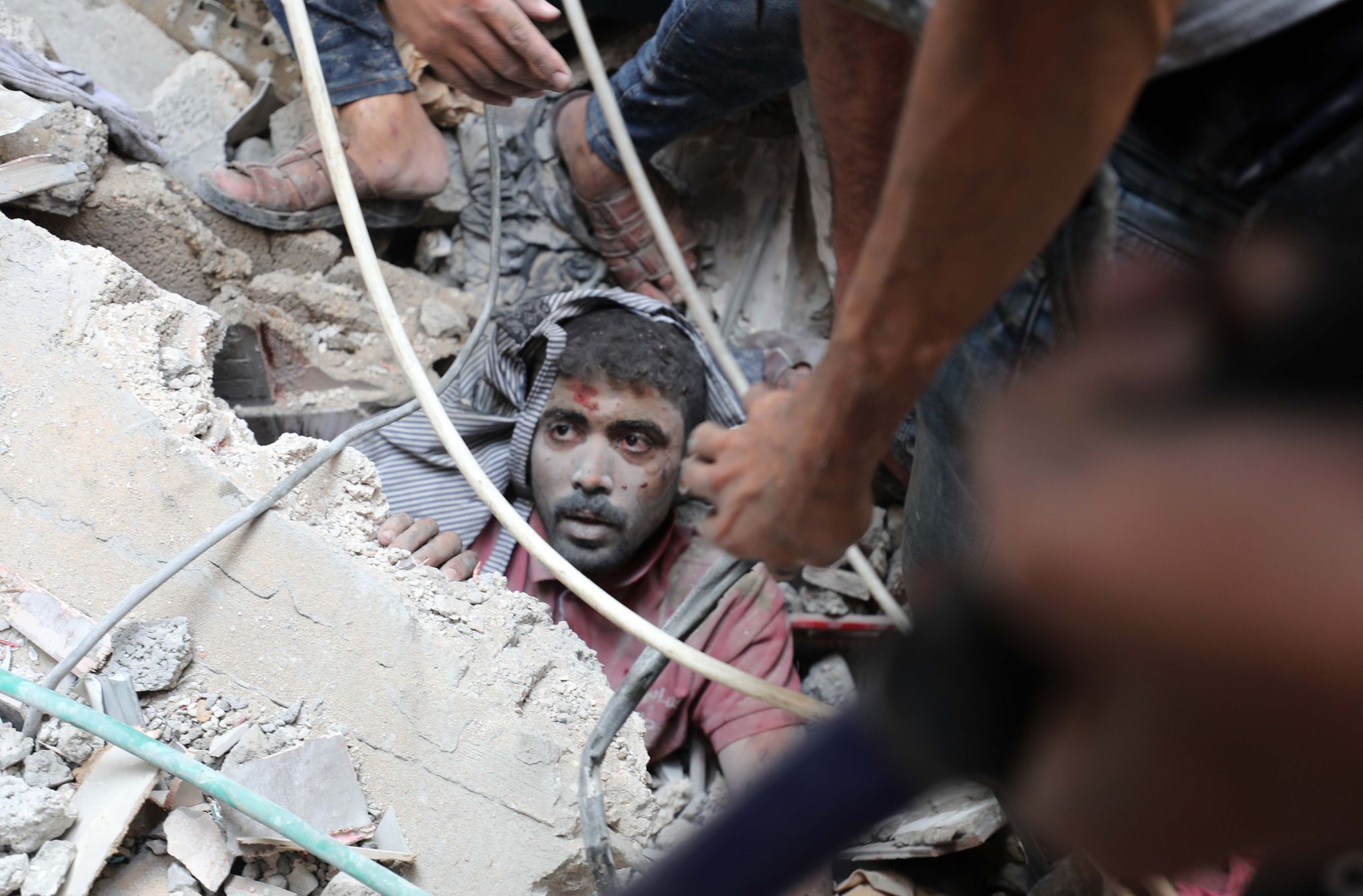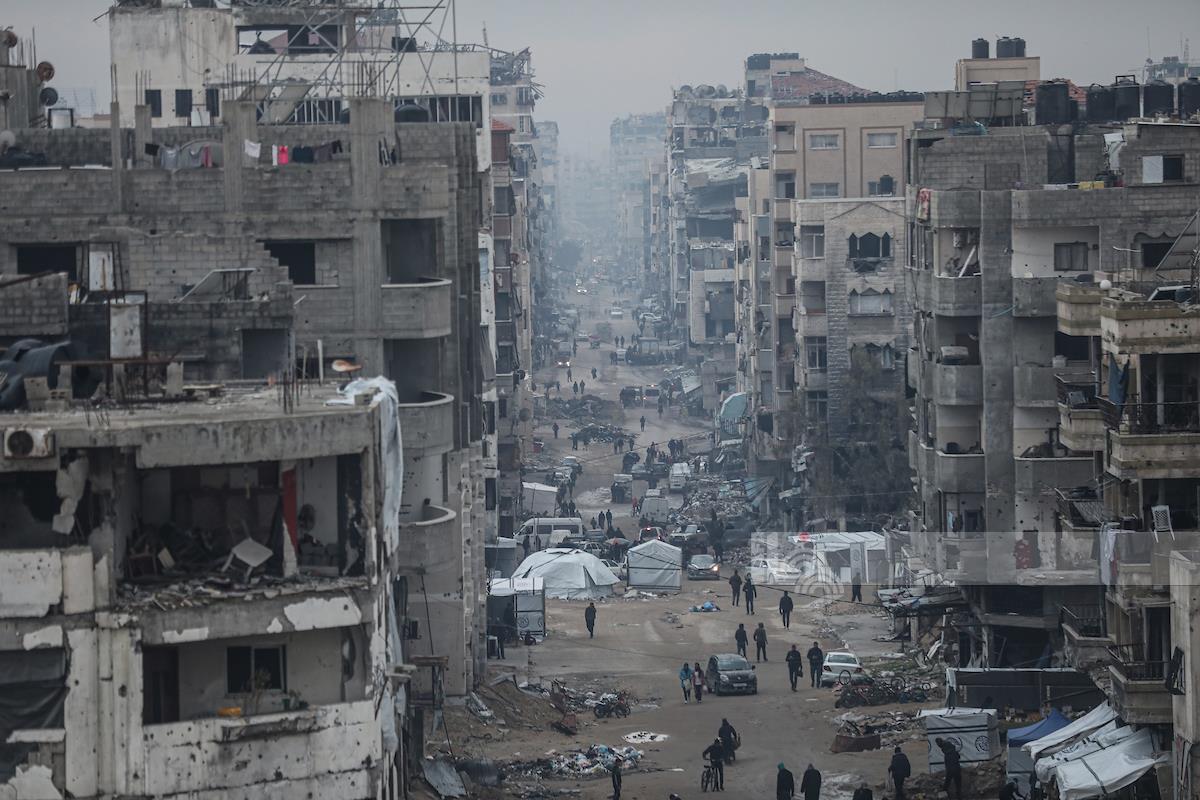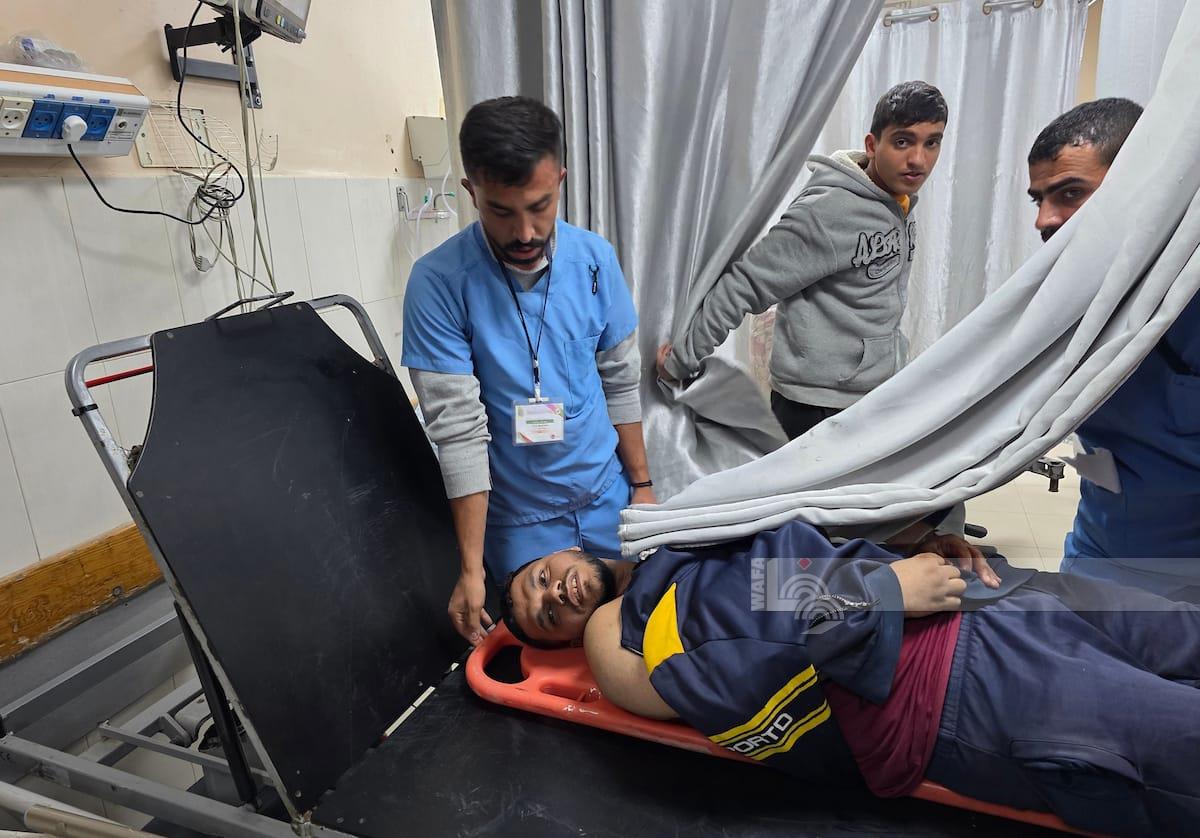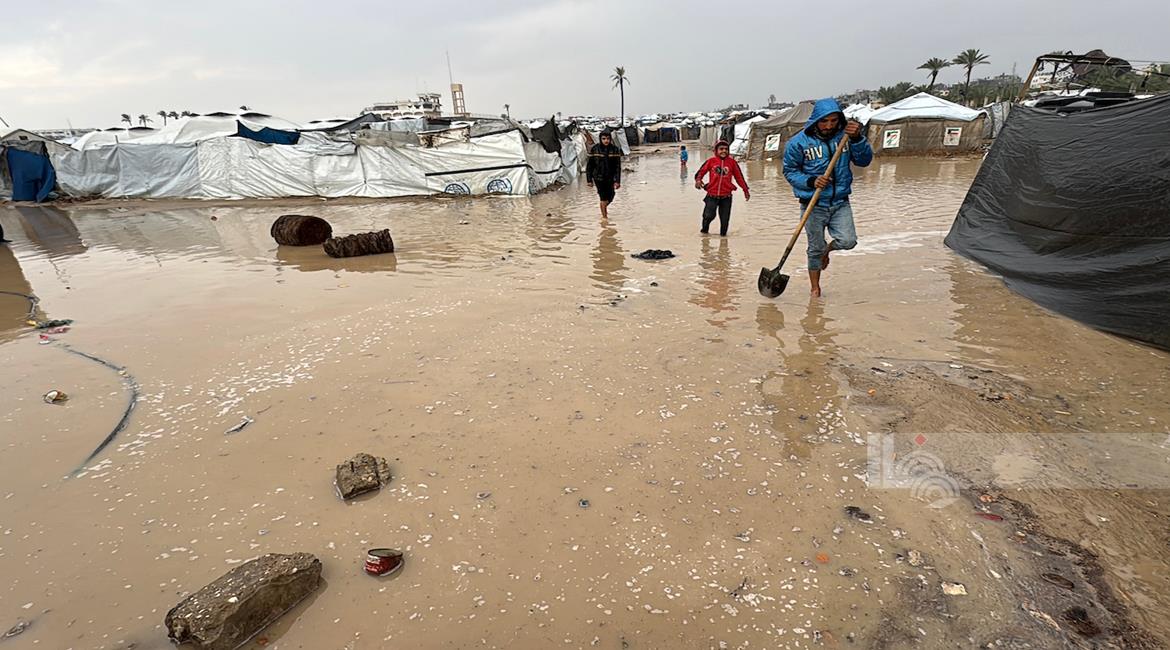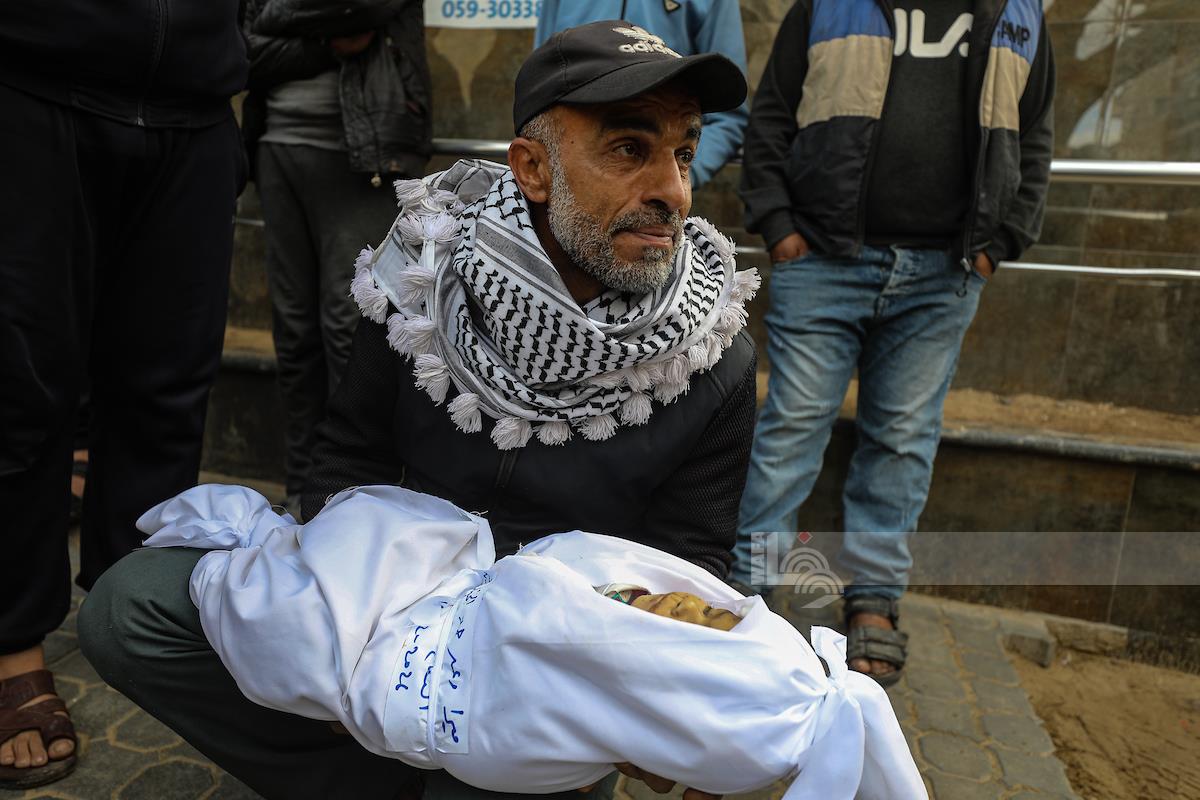By Sami Abu Salem
GAZA, Sunday, November 26, 2023 (WAFA) – Courage is not confined to a specific segment of society; it extends beyond soldiers in battle. In the midst of the ongoing Israeli aggression on Gaza, civilians are making sacrifices and displaying extraordinary bravery, whether in an attempt to save others or by reaching out to help those in need.
Rami Abu Shaaban, a 52-year-old man, studied biochemistry at Maastricht University in the Netherlands. He is one of the selfless individuals who sacrificed their lives to save their neighbors. Rami, not a military fighter or a member of any Palestinian faction, worked as a trainer in human development and marketing for over two decades.
When tanks approached the Al-Rimal neighborhood of Gaza City, where Rami lived, he heard gunfire followed by cries of women and children. According this sister, Rasha, Rami rushed to check on his neighbors and discovered that three of them were injured. Waiting for ambulances proved futile due to the presence of Israeli tanks roaming the area, raining bullets on homes and streets and on everything moving.
Ignoring the danger, Rami went out to rescue the injured, only to be ambushed by tanks that fired more bullets, killing him and a neighbor who joined him in the rescue effort. Rami's selfless act cost him his life, leaving behind four orphans.
In the center of Gaza, in the Al-Bureij refugee camp, Mohammad Refaat al-Saloul, 33 years old, risked his life to save his neighbors following an Israeli airstrike. He carried a child, attempting to escape the danger, but another rocket was dropped on the residential square, leading to injuries for Mohammad and burying the child under the rubble.
Mohammad, a hero in his own right, suffered fractures in his ribs and back, along with head injuries, as he dug through the debris to find the injured child. His story is a testament to the moral and humanitarian duty that drives young individuals to help those in need, even in the face of danger.
Ahmad Abu Khdeir, a 55-year-old paramedic working in civil defense, sustained multiple injuries while trying to rescue a family targeted by Israeli shelling. Ahmad and his colleagues received a signal about a house belonging to the Halou family being bombed. They rushed to the scene, extracted three martyrs, and began searching the area despite the risk of being targeted again.
"At times, bodies or the wounded are thrown tens of meters away, and when I was searching the rooftop of one place, a second missile landed on the same house, resulting in injuries to my foot and head," said Khdeir.
He emphasized that rescuing victims is a purely humanitarian act before it is a job, and the most crucial weapons are courage and boldness. "Based on our experiences, we know that the occupation sometimes targets the same location more than once, exposing our lives to danger, but this is our duty," added Khdeir.
Bassil and Raed Mahdi, two obstetricians and gynecologists from Gaza City, were dedicated to their profession and community. Refusing to leave their hospital—as demanded by the Israeli occupation army—and the displaced families seeking refuge there, the two brothers lost their lives when their medical facility was targeted by Israeli strikes.
In the neighborhood of Sheikh Radwan in Gaza City, Maher Al-Ghoul and his son-in-law, Mohammad Al-Taweel, were carrying empty yellow jerry cans, searching for drinking water for their children and the neighborhood's children.
As soon as they crossed the "Second Street" in the neighborhood, an Israeli tank opened fire on them. Mohammad Said Al-Ghoul, also known as Abu Al-Saeed, joined them, disregarding the gunfire. Before reaching them, an Israeli sniper shot and killed him, as confirmed by several members of the Al-Ghoul family to WAFA.
Abu Al-Saeed seized the opportunity of having a signal on his phone and called for an ambulance, rescue, and all the international organizations he knew. However, there was no response. The replies were either negative, as the area was defined as a "military operations zone," according to the occupation's notification, or there were delays in reaching them due to road destruction or the Israeli occupation forces shooting at anything moving.
Maher and Abu Al-Saeed Al-Ghoul, both community activists and employees in the Palestinian Authority, had decided not to leave Gaza and not to head south, fearing a repeat of the Palestinian people's catastrophe in 1948, as stated by Nizar Al-Ghoul, Maher's cousin. He added that since October 12, Maher and Abu Al-Saeed decided to assist the residents who stayed in their neighborhood.
"They formed something like a resilience committee in the neighborhood to organize queues at bakeries—before they were bombed—and provide clean drinking water, food, and medicines for chronic diseases for families who decided not to leave," said Nizar.
The bodies of the martyrs, Abu Al-Saeed, Maher, and Mohammad, remained lying in the street for three days, as no one dared to approach them due to the Israeli snipers' presence. Then, the neighbors moved them and buried them in the courtyard of the Sheikh Radwan Clinic, near the place of their martyrdom, according to Nizar.
Since the beginning of the Israeli aggression on Gaza, the toll of martyrs has approached 15,000, including 22 from civil defense and 205 from medical teams and paramedics. Each story represents a sacrifice for the sake of humanity, a struggle against adversity, and a commitment to helping others despite the Israeli genocide.
These unknown heroes, from all walks of life, continue to emerge from the heart of the devastation in Gaza, embodying the spirit of resilience and resistance against Israeli aggression and genocide.
-
M.N




